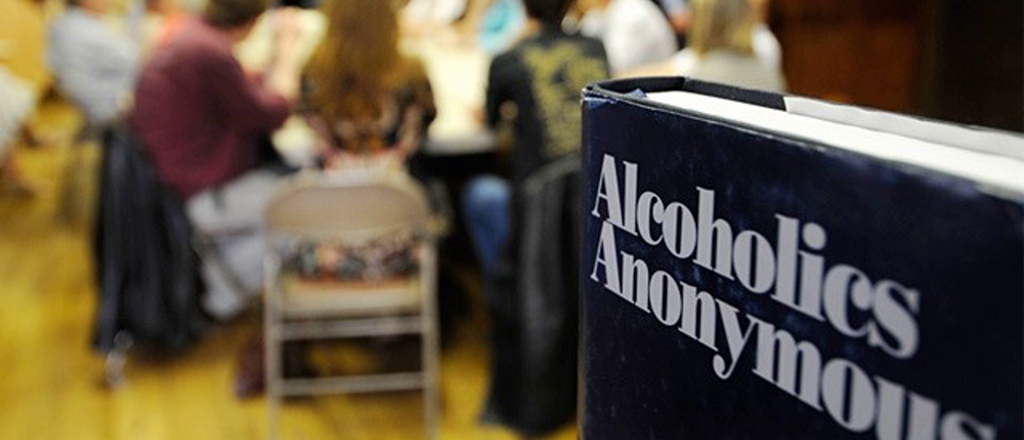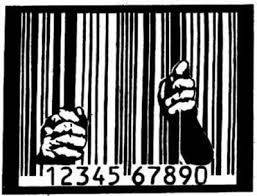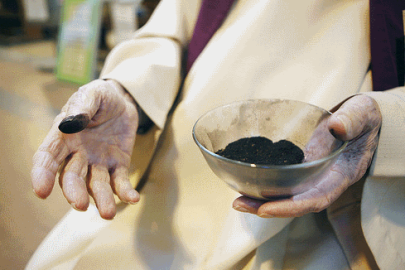Texts: Joel 2:1-2,12-17 + Ps. 51:1-17 + 2 Cor. 5:20b–6:10 + Matt. 6:1-6,16-21
One thing I miss about our former church building is the presence of the different 12-step groups that met in the Lesher Lounge across the hall from my office on various nights throughout the week. Over the years we’d hosted a number of A.A. and N.A. groups and I’d gotten to know their members, who would drop by my office to talk, share news from their lives, and occasionally to ask me if I could preside at the funerals of members who’d died.

Week after week these people gathered to recount the core tenets of their faith (“We admitted we were powerless over alcohol — that our lives had become unmanageable / We came to believe that a Power greater than ourselves could restore us to sanity.”), to listen to one another’s testimonies, to offer the kind of grace only another addict can give, to remind each other to “keep showing up,” and to fight for their lives. Because that’s what is at stake when you become aware of your addictions, your very life.
Do you have that sense when you come to worship, that you are here fighting for your very life?
I do.
When I look around at the world and see how badly it tries to warp the image of God, so clearly imprinted upon each of us; how it lies to us and badgers us and coerces us into giving up our self-esteem, our dignity, our love toward one another, our compassion — everything that makes us human. When I see people working themselves to death to prove to their neighbors and fellow citizens that they are worthy of acceptance and belonging.  When I see people spending their time and their money on projects and purchases that are supposed to demonstrate, once and for all, that they made it, that they got out, that they succeeded. I see the power of death corrupting us from the inside out, worming its way into our hearts and souls and lying to us over and over again until we are willing hand over our birthright: the knowledge that, in God’s eyes, we are all good, and whole, and loved.
When I see people spending their time and their money on projects and purchases that are supposed to demonstrate, once and for all, that they made it, that they got out, that they succeeded. I see the power of death corrupting us from the inside out, worming its way into our hearts and souls and lying to us over and over again until we are willing hand over our birthright: the knowledge that, in God’s eyes, we are all good, and whole, and loved.
The alcoholic doesn’t give up drinking, the addict doesn’t give up drugs, to prove that they have willpower. They do it because they know their life is on the line and they want to live, or at least they want to want to live. So why do we “give something up” for Lent? Is it to prove the strength of our will? Is it a kind of offering to God, something we love given up to demonstrate an even deeper love? Maybe, and if so, okay. But with each passing year I hear more and more people saying, “I don’t give anything up for Lent,” and I understand why. Because if giving something up is just one more optional discipline in our already over-burdened lives, why would we bother? Most of us are going to need a deeper motivation than tradition to structure our behavior.
Let me suggest a different motivation.
You already know that our planet is in peril, that the Earth we are leaving to our children is compromised in ways that will take generations to heal. You already know that humanity is divided between the rich and the poor, that nearly half the world’s population lives on less than $3 a day. You already know that the nations are at war, that we are all experiencing the impact of a global refugee crisis. You already know that our nation is bitterly divided along partisan lines, and that our city is bleeding out from the ongoing epidemic of gun violence. You already know that this neighborhood is on the front lines of a class war that has pitted the working poor and working class against wave after wave of gentrifiers with affordable housing as the battleground. Those are the causes we most frequently name when we offer up our prayers to God — because we are conscious and we are compassionate, because we care about our neighbors and the planet we all share.
But those concerns also remain, for some of us, pretty abstract. They are the problems we know we are supposed to care about, the issues we post about on social media. They are the sorts of problems that we suppose can be fixed by having the right opinions, without requiring any true sacrifice on our part. They are the sorts of problems we can worry about, even work on, without examining our own lives too closely — without asking questions that might demand hard answers from ourselves.
 Ash Wednesday asks us to remember our mortality: “ashes to ashes, dust to dust.” To know that we are not dying someday, we are already well on our way. Death is not far off for any of us, whether it comes next week or forty years from now. Our time is short, and the gift of life we have received was not meant to be wasted chasing after the false gods that promise solutions to problems they themselves have created.
Ash Wednesday asks us to remember our mortality: “ashes to ashes, dust to dust.” To know that we are not dying someday, we are already well on our way. Death is not far off for any of us, whether it comes next week or forty years from now. Our time is short, and the gift of life we have received was not meant to be wasted chasing after the false gods that promise solutions to problems they themselves have created.
Lent is for you. In the same way that Israel wandered in the wilderness for forty years in their quest to become free people, Lent is that forty day pilgrimage in which each of us is called to rigorous self-examination, to make an honest inventory of the ways we are tempted to give up on each other and ourselves, and to figure out why. Why are we so susceptible to the lure of advertising? What in our past made us feel so deficient that only the right clothes or the right neighborhood could fill that void? Why are we so willing to sacrifice our friendships and our marriages to the demands of our jobs? When did we learn that our worth was determined by our work? Why do we binge-watch hour after hour of fantasies about other people’s lives? Why are we consumed with jealousy about other people’s families? Why are we so obsessed with how much or how little we eat? What are the patterns and habits you find yourself trapped inside, and what would you have to give up if you wanted to be truly free?
Paulo Freire asks the question this way,
“What if we discover that our present way of life is irreconcilable with our vocation to become fully human?”
This is what God wants for you — that you turn and remember that you are already fully human, and that you not waste another hour of your one, precious life trying to earn something you’ve already been given as a free gift. You belong here on this earth, among the company of humanity, safe wherever you go, loved for who you are. Anything that says otherwise is a lie you need to give up — not just for Lent, but for life.
Here is what I’ve been saying about our community to those who ask me what our ministry is about: we are about creating powerful change in the lives of people so that, together, we can create powerful change in the world around us. My suspicion is that we are much more comfortable with the second half of that equation — naming and laboring for a changed world. The thing is, in order for our witness to have any credibility, we must attend to the first half of the equation as well. We cannot claim God’s love for the world if we cannot claim God’s love for ourselves. We cannot proclaim God’s liberation for the oppressed if we cannot accept God’s desire to set us free. We cannot credibly convey God’s grace to others if we cannot receive God’s grace ourselves.
So, if you are still struggling to figure out what to give up for Lent this year, try this as a starting point — try giving up the idea that there is someone more deserving of God’s grace, God’s freedom, and God’s love than you. Then, if you can figure out what it is in your life that keeps that idea alive, give that up as well. Become a ruthless investigator of your own soul and fight for it, as if you were fighting for your very life, because you are — and we are all here fighting alongside you.
Keep coming back.
Appreciate this… “Become a ruthless investigator of your own soul. Fight for it as if for your own life. Because you are.” Also appreciate rediscovering your website and accessing sermons here, with photos, large type, varying fonts. Much richer experience than crunching over my cell phone! Many thanks to whoever does all of this web work!